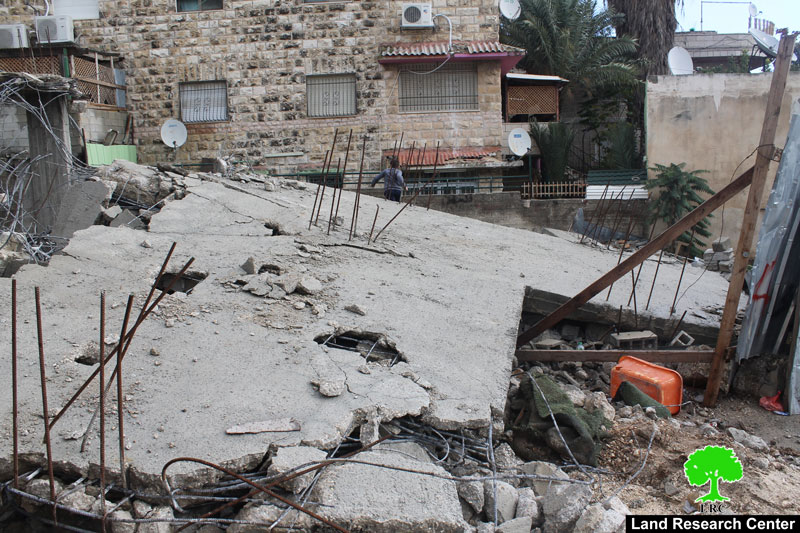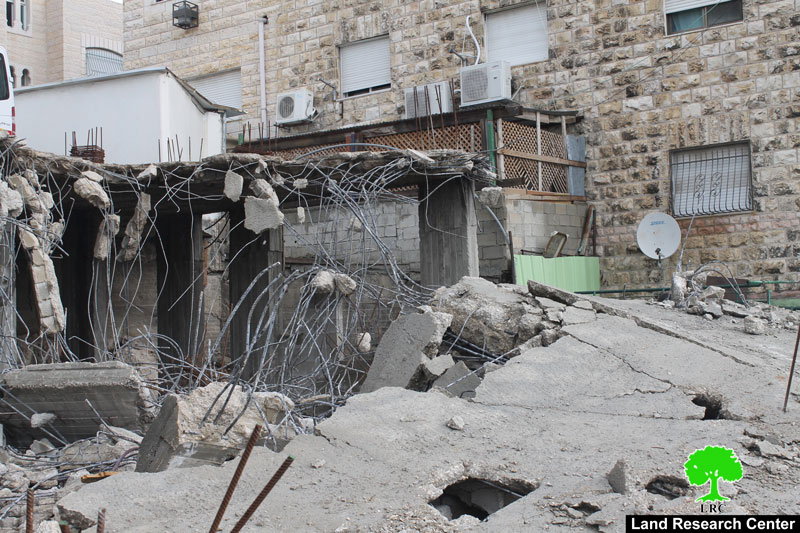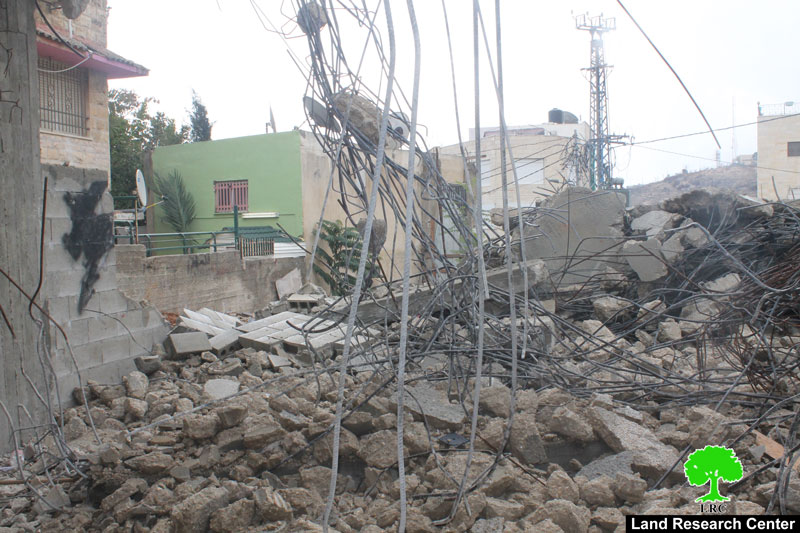2017-11-22
Israeli bulldozers demolish under construction in Occupied Jerusalem
The bulldozers of the Israeli occupation army demolished On November 22, 2017 an under construction residence in Al-Isawiya town on the claim of "unlicensed construction". Noteworthy, the structure belongs to citizen Sharif Mheisin and is of 170m2 in area.
Citizen Sharif told Land Research Center the following:
"I lived with my six member family including two children in a 120m2 house. Due to the small size, I expanded the house to become 170m2 in 2015. Inspectors from Israel Municipality in Jerusalem arrived at the location and notified the house of demolition. Not only, they summoned me to stand before the court.
Then, I hired an attorney to follow up on my case in the Israeli court but since the area is classified "unplanned" by the municipality, we couldn’t apply for construction permit.
On April 2017, I received another demolition order followed by another one on November 22, 2017. I delivered them all to the attorney. On January 22, 2017, the municipality staff and army dozers encircled the house and brought it down before closing all ways leading to the structure."



The occupation is seeking to empty the area from structures and people by conducting the policy of home demolition and lands confiscation in order to implement its plan of National Park, which devoured hundreds of dunums despite being officially and legally owned by Palestinians
The area of Al-Isawiya is suffering from Israeli measures and restrictions seen in closures, checkpoints and harassments. Kids, women and elderly suffer from soldiers where dozens of youth get detained on daily basis. Houses and structures get demolished and sabotaged as a result.
Land Research Center LRC sees that demolitions contradict with all the International conventions and Humanitarian laws including:
Article 17 of the (1948) Universal Declaration of Human Rights stating: “Everyone has the right to own property alone as well as in association with others. No one shall be arbitrarily deprived of his property.”
Section ‹G› of article 23 of the (1907) The Hague Conventions asserting: “In addition to the prohibitions provided by special Conventions, it is especially forbidden to destroy or seize the enemy's property, unless such destruction or seizure be imperatively demanded by the necessities of war.”
Article 53 of the Geneva Fourth Convention (1948) declaring: “Any destruction by the Occupying Power of real or personal property belonging individually or collectively to private persons, or to the State, or to other public authorities, or to social or cooperative organizations, is prohibited, except where such destruction is rendered absolutely necessary by military operations.”
Section 1, Article 11 of the International Covenant on Economic, Social and Cultural Rights (1966): “The States Parties to the present Covenant recognize the right of everyone to an adequate standard of living for himself and his family, including adequate food, clothing and housing, and to the continuous improvement of living conditions.
This case study is part of Kan'aan Project

